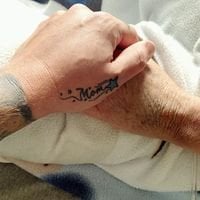Search the Community
Showing results for '"Weight gain"'.
Found 15,863 results
-
I just researched some of the medicine I am still on and the say they cause weight gain. I am 3 weeks post op and now scared to death these meds are going to slow me down in my weight loss journey.My goal is to be off all my meds as the weight comes off but until then is it sabotaging my weight loss? Does anyone else have this concern?
-
I am a newbie here, lots of great info thanks. I have cigna, I started my 6 months of nutrition counsel teo months a go, my BMI was about 37-38 in the two months I put on about ten lbs, the nutritionist says that it won't bear well if I gain weight during the six months of eval. I don't want to disqualify myself. I do have co morbidities, HBP. Will the small weight gain make me lose my insurance coverage? Thanks for the help
-
Hi all, Only a few things taste different for me. Only artificial sweetener I can tolerate is Splenda. Whatever is in sugar free pudding didn't used to bother me but now I can taste it big time. Someone recommended using sugar free pudding mix with the greek yogurt. Yuck! And I'm losing my taste for Spaghetti Sauce because it gives me heartburn. Also less prone to go nuts on sweets or fats for more than one day running because I feel crappy the next day (not to mention the weight gain!). Lynda
-
I am scheduled for surgery on October 28. I'm self pay (in US, not in Mexico) and have my second appointment with my surgeon in a few days. The problem is that I have been gorging on food because I feel like I'm saying goodbye to a lifelong friend and habit. I'm so ashamed that I've gained at least 5 pounds and maybe more in a month and feel like the surgeon is going to be upset. Did any of you have any weight gain in the weeks before you started your pre-op diet?
-
I tell everyone as well! I figure if they see you losing weight and keeping it off then they are gonna talk anyhow because everyone knows that 99% of people who lose weight gain it right back with out some kind of help. Don't want to be another Star Jones that was a no brainer watching a fat all of your life woman go down to nothing and lie about it on national TV.
-


Using the Scale for Accountability
karenb4729 replied to ISleevedIt's topic in Gastric Sleeve Surgery Forums
I read that same article and yes, I weigh every day. Part of the reason I do is that my weight gain came from ignoring the scale. I knew I was putting on weight and didn't get on a scale for 5 years because I didn't want to see that number..... Ignorance is NOT bliss and just because you don't look doesn't mean it isn't there. I will weigh myself daily for the rest of my life whether I want to or not and I will jump into action if I see a consistent increase - will never allow myself to be obese again! -


Gallbladder First, Sleeve Next
Shay27 replied to Meganator's topic in PRE-Operation Weight Loss Surgery Q&A
I had my gallbladder removed about 10 months before getting sleeved. I gained about 38 lbs in those months and the weight gain didn’t seem to be slowing down so WLS was a must at this point. Comparing the two, I feel like I had less pain with the WLS. I actually asked my mom if she was sure they even did anything! 1. I didn’t need any painkillers after WLS, but I took them for about a week after gallbladder removal. 2. I’m typically a stomach sleeper and was also able to go back to sleeping on my stomach faster after the sleeve. 3. i only needed to sleep on a recliner for 2 days after WLS, but slept in a recliner for about 10 days after gallbladder removal. 4. Moving around was also easier for me after the sleeve, mainly because I felt like I couldn’t stand up straight after the gallbladder removal. 5. I was sleepier after the sleeve and generally had less energy the first week. 6. I had a bowel movement faster after WLS and going to the bathroom was easier in general. 7. TMI but I had sex sooner after WLS than I did after gallbladder removal. 8. Oh, my surgeon used my main gallbladder removal incision (the top one) so I only had 2 new tiny incisions for a total of 3 incisions for WLS. He felt like it was unnecessary for me to have more scars than I should so maybe that’s an individual thing that differs from surgeon to surgeon so I’d ask if that was possible. I only have the 3 WLS incisions visible and the gallbladder ones were so tiny they disappeared (you can only see them if you know where to look). So all in all I’d say my recovery from the sleeve was easier than the gallbladder removal, but of course that’s just me. I’m sure other people have it the other way around. Either way, you can do it! For me, the hardest step was actually deciding and committing to the WLS. Don’t worry, you got this!! Please feel free to message me if you feel like you have more questions or if I missed anything. -
Hi Everyone 19 days till surgery. I am so excited yet feeling a bit overwhelmed. I feel overwhelmed at the thought that this could really work. After all the failed diets, fads, and programs. Is this really it? I just cannot imagin. Well I can. I weighed 160lbs before my son was born, after that the weight gain didn't stop till I hit my hugh of 173. Today I am 165. Anyone else feel that feeling of "this is a dream"? I am so excited just...you. Thank you to everyone who shares. It is inspiring?
-


Nearly 2 years post lapband; semi failure
54Shirley replied to TooFat4Ever's topic in POST-Operation Weight Loss Surgery Q&A
i was banded on 10/31/06 Lost weight, gained it back, do to the fault of poor aftercare.... I found a new surgeon, they put me under Fluoroscopy, and we are now rolling. I also journal my diet, and exercise. I hope you gave yourself a calorie limit to follow, and stick with it, and if it's to high then yep you can cut back in different foods. Some stuff goes a long way. Also look for another surgeon, and get checked out. They will also give you new guidelines. -
been on Zoloft since 2008 and while I had some weight gain it was not the cause of all of the gain.. I am still on it, and losing fine.. 58ish lbs in 6 weeks. If it works for you don't change it. It was very hard to find something that worked for me.. I was also on welbutrin but have stopped taking it because depression isn't an issue right now. Zoloft I take for anxiety and it takes the edge off so well for me I don't want to stop taking it just yet.
-
I am pre op and trying to get my arms around hearing about gaining weight after surgery. I have heard and read about people getting back up to their starting weight. I am so confused on how this happens- other than people pushing their food limits wayyy beyond what they should be. If you eat "incorrectly" on Occasion or eat normal foods, just in smaller portion will this weight gain occur? What have people time after surgery and weight gains looked like? Also what do you attribute it to? Sent from my iPhone using the BariatricPal App
-
I am another person that started wearing brighter clothing once the weight started coming off. I always did like dark clothing, but with such extreme weight gain over the years, I pretty much HID behind it all as a way to hopefully not be noticed as much. It is funny though in that through the years, I didn't really consider that aspect of it until the weight loss started. I HATED pink in my old life, I had a cousin joke that she would be having me wearing pink in no time and I told her NO NO WAY. Guess who now wears pink in addition to every other color out there now? lol... Times sure do change. I care about my makeup now as well, didn't really care to even bother with it much in the past. Now I make sure I at least throw on some base makeup and powder if I am going out of the house, more makeup if I am headed out to eat or to visit someone or to Doctors, etc. And I always make sure to keep up with keeping my hair dyed now too, I hate when my greys start coming in and never really worried about it much before. I also have been picking up some newer, prettier jewelry, plus I inherited a whole armoire completely full of pretty pieces from an Aunt that sadly passed last year and I have been wearing her things as well. Not that I am particularly vain now, at least I hope I haven't become overly vain. But I do care about looking like a vibrant woman again, and that feels wonderful. Add to this the fact that I feel more assertive than I have in YEARS, I gained a backbone.
-


Revision Supervised Weight Loss Question
Juniper123 posted a topic in Revision Weight Loss Surgery Forums (NEW!)
Brief background, got lapband about 11 years ago (starting BMI was 43). I did well and kept off 55 pounds (BMI 33)... until I started aspirating at night. I had a barium swallow which showed a distended esophagus and a endoscopy which showed reflux. Doc said band needs to come out. I had band unfilled, and as I expected, I've gained weight. I've gained about 30 lbs in the last 5 months (current BMI 38). I want to revise to a gastric bypass. I am well aware that I need surgical help to keep at a healthy weight. Prior to banding, and since being unfilled, I'm constantly hungry and never feel full. I finally felt "normal" with the lapband. When I'm not constantly hungry, I can maintain a healthy weight. But, even with the extra 30 lbs, my BMI is still not over 40, which as I understand it, would make insurance coverage easy. (I have Maryland CareFirst BCBS) My doctor has me doing all the things needed for insurance approval for the revision, including being on a supervised diet. But I'm gaining weight. This does not surprise me -- there was a reason I needed surgical weight loss in the first place -- but I'm getting mixed messages from my doctor and from my diet supervisor (who works for his office). Diet supervisor tells me that I'm less likely to get insurance approval due to my weight gain since being unfilled and being on the supervised diet. Doctor has made vague statements saying that the reflux found on the endoscopy may be enough to make it go through insurance successfully. Diet supervisor wants me to lose a significant amount of weight in the coming month, to try to offset my gains, by going on the pre-surgical diet early. Very honestly, I'm hesitant. If I do end up having to get up to a 40 BMI to have the surgery (12 more pounds...), I don't want to yoyo any more than I have to. And if the reflux finding will get me approved, I don't want to starve myself without the benefit of surgical help. Anybody been in any kind of similar situation? I can use any advice or commiseration available. -
Yup sounds very normal. Most docs will say not to really count weight loss until you are off the liquids and onto regular food. My doctor said to count that as bonus weight. And the longer post op you will probably find yourself hungrier. It's the hardest part for most as you havent had a fill yet. As for the BM, your not eating anything solid so you will probably have much less in the way of BM's. I will sometimes, even six months out, go two weeks withough a BM and will have to do something to help things along :thumbup: The sodium in soups can defanitely be an explenation for weight gain. I will carry up to three pounds just in water retention if I have too much sodium. Up to five pounds during my period. Try some mom to move the bowels and lower your sodium and drink lots of water and see what happens.
-


Obesity and its Affects on Relationships and Acceptance
BZButterfly79 posted a topic in PRE-Operation Weight Loss Surgery Q&A
I just read this great article written by Bruce Underwood(WLS brother) in his website. I will post the link below the article so you can explore. Obesity and its Affects on Relationships and Acceptance Obese individuals have multiple and varying insecurities related to their obesity. These may differ depending on the when obesity became an issue, affected their life most, and length of time. Age, rewarding experiences, negative experiences, and humiliations also play major roles on how each person sees themselves and their self confidence. Parental, sibling, friendship, spousal relationships, and other relationships affect an individual prior to and following weight loss surgery. I have not always been obese and have had lived periods of my life with several different areas of acceptance with varying degrees of confidence. These areas include intellectual acceptance, physical acceptance, sexual acceptance, peer acceptance, acceptance of friends, spousal or mate acceptance, and audience acceptance. Each of these areas is affected by an individual’s self confidence and ability to present himself in a positive way. However, acceptance and experience also affect an individual’s confidence level in each of these areas. The more success and acceptance in a particular area, the more confidence an individual has. However, more rejection reduces self confidence, which further reduces acceptance. This circular syndrome becomes exponential in its effect on an individual. Obesity plays a major role in producing this syndrome as prejudice and stereotyping are projected on obese individuals. Individuals that have been obese all of their lives may have few or no successes in a number of areas of acceptance and may tend to naturally gravitate to other areas where they achieve success and acceptance. The fewer the areas of acceptance the lower the self esteem that a person may have. However, the person who has been obese all of their life, probably does not suffer grief from the loss of acceptance areas as some areas have never been explored. For individuals that become obese later in life, grief from the loss in specific area of acceptance is normal. Having experienced varying levels of success in an area of acceptance, the obese individual may long for those areas and may actually suffer greater depression because of the rejection that they now face in those areas. An example of this may be that of a person who once experienced acceptance in physical beauty and was rewarded highly for their beauty. Now obese, she finds herself longing for the physical and emotional acceptance, but receives rejection. This rejection leads to anger, depression and in cases self loathing. Initially there is denial and then anger. Often diet and exercise only exacerbates the problem as dieting attempts fail. Moments of success followed by diet failures drive down the self esteem and cause greater depression. Friends, peers, relatives, and those who once were flirtatious now look around, through or away and she feels much less the person than she once was. The people around her now become part of the problem as they now become the reminder of what she once was. Additionally, family, friends, and others may add to the problem by acting as the food or diet police with the individual. Often judgmental remarks and comments thought to be helpful actually make the person feel less acceptance and further rejected as an equal or peer. The family member, friend or person making the comment is perceived as being on a different level physically and perhaps intellectually. This perception may be with both parties involved or just by one of the parties; obese or other. The person may react over time in several ways: Things related to beauty may not even be attempted as they are reminders of the pain. Photographs and pictures are avoided as it is easier to live with self image from the past. New photographs are only reminders of the failure and are foreign missals that destroy the image within the mind. In addition, the more positive self image from the past actually helps to promote self confidence in other areas of acceptance such as audience and individual acceptance. The person tends to gravitate to areas that make people like them. These may take the form of humor, knowledge, and expertise. Physical activity becomes more difficult as obesity becomes more profound. Areas that require physical activity and physical fit begin to be avoided. Games, amusement parks, dance, taking car or airplane trips, hiking, theaters, etc. are avoided. The individual may begin to live vicariously through their children, family, friends, and peers. This too may become difficult as these people may resent the now “hanger on”. Surgery and Diet makes a difference – WLS and Diet - Stages of Difference, Awareness and Acceptance: 1) Self Notice – You notice a difference in yourself. As you begin to lose weight, you begin to notice the change. You feel physically different and you notice changes in your face and shoulders. You wonder if and when other people are going to say something. 2) Something’s Different – Others begin to notice a difference, but they are not sure what it is. I like your new hair style. Did you color your hair?. Did you use to have a beard? I thought you wore glasses? A few truly observant folks may say... You’ve lost weight... haven’t you? Usually still as a question. 3) Physical Change - Your clothes are baggy and you need a wardrobe change. You feel better and look better. A lot of people realize you are losing weight and say you look great. You and your friends are proud of the results. 4) Significant Difference - There is a significant difference in you appearance and everybody can see it even if it is not spoken. You know it and they know it. You feel better about yourself and have much greater energy and anticipation. You may or may not notice that people are beginning to treat you differently. You like the compliments and the positive feedback. You look great! Wow! What a difference! You are going to just blow away! You begin to think, wow I am looking better. You may find yourself getting out more and taking more chances. Spreading your wings and taking little flights of freedom to see how things work now. Self Confidence increases and you begin looking at the world a little differently. Excitement seems to be ever present. You may find that fear of failure is also increased at this point as you may not fully trust the results of success. Plateaus and periods of static weight loss may cause greater concern. Moods may seem to swing. 5) Identity Crisis – At this point you are very different physically. Your friends, family, and folks you don’t know react differently to you. You may find that the opposite sex respond flirtatiously and jokingly to you. Family, friends, peers, and co-worker relationships seem to change. Some relationships are better, but some are strained. You want more and expect more from others and yourself. You are excited about your new body and look, but may be angered and frustrated by differences in existing relationships. Leveling occurs as people feel threatened by your new look. People may put you down in areas and /or build themselves up as they want to “level” the playing field with you. You probably don’t know exactly where you fit in physically in the world anymore. You may have an exaggerated opinion or an under-exaggerated opinion of where people see your physical attractiveness. “I must look fantastic, because I am getting all this attention and everybody is telling me how good I look”. Or, “I am still fat and people are just saying that I look good to be nice” “He can’t be attracted to me”. This is also a time that poses serious threats to marital relationships. The spouse may feel threatened by the vast changes in your appearance and attractiveness. In addition, the self confidence, energy level, and desire to explore may also pose threats to status quo that once existed in your relationship. Often an obese person has not been happy in a relationship, but has lacked the self confidence and desire to make a change. New energy, attractiveness, self confidence, a desire for improvement, and the inability to discern at what level one fits in socially, may promote a relationship change or a desire to “Upgrade”. This is a time for introspection. Explore your feelings and desires. If you feel angry and frustrated, where are those feeling coming from? Who are those feelings directed towards and why? Seek out people who are honest with you and ask their opinion, but be prepared for their honest criticisms. Validate their criticisms with others that you trust. Be careful to not make rash judgments and changes, but proceed cautiously. It is a time of change, exploration, and hope as you desire to get your life back. There are those people that want to keep you confined. There are those who want to help. There are those who just want to use your energy. There are those that love you regardless of the changes. 6) Self Acknowledgement - This is a time where you begin to see where you fit in to the world as friends, family, peers, and co-workers begin to accept your appearance and changes. You may feel hurt and disappointed at times as the complements and ego boosting flattery begin to dissipate. You may once again feel threatened by the lack of weight loss and the fear of failure as some weight gain may occur. The highs and are not so high, but the lows may tend to make you depressed at times. You still feel good, but may feel less attractive as you receive fewer compliments. Some people that fed off your energy, desire, and newness no longer are as flirtatious and even strangers appear not to pay you as much attention. Life begins to level out and you begin appear “Normal”. 7) Self Acceptance and Self Awareness – At this stage, obesity is of little or no concern to you. You are aware of your size and acceptance of others. You know where you fit in. Some of your insecurities are still there, some have fallen by the wayside, but may have changed. Life has settled down and the normal problems and happiness of life make you aware of your existence. Hopefully, you have grown more beautiful, more emotionally sound, more mentally aware, more spiritually connected, and more wise. Hopefully, the journey has made you more of a person and less of a ghost. The pains that obesity brought you have made you a more empathetic and sympathetic and less judgmental. Understanding and the weathering of your own insecurities have made you strong and compassionate and you now see with clarity the reasons behind your lack of self confidence and you strive to help others to see the beauty that is within each of us. Misconceptions and Naiveté of Sexual Attractiveness - Sex Exploration Obese people often have issues with being accepted by other people, especially physical acceptance. They have often been or become the ugly duckling of society and have gotten use to rejection in the area of physical attractiveness. Often, feeling the rejection of physical attractiveness causes deep seated dependencies and feelings of need. Bottom line, they want to be loved, we want to be pretty and we want to be accepted by other people. Being fat has been a road block that prevented the acceptance from occurring. Physical rejection and lack acceptance is often displayed in parents and siblings. Often, parents and siblings tell a fat child, youth, or adult what they think of their obesity. This can be done out of cruelty, but usually it is done out of concern for the person. However, regardless of the intent, the result is profound in the life of the obese person and can be damaging for a life. In other words, a parent may tell an obese person, “You have gained so much weight... I am so worried about you”. Or they may say, “You have gotten so fat, nobody is going to want to ever be with you”. These types of comments, though they may temporarily encourage a person to lose weight, they also label the over weight person as undesirable and let them know that they are a physical reject to them and to society. Sexual rejection often goes hand in hand with physical rejections and acceptance. Being accepted sexually is often associated with physical acceptance. If a person is accepted sexually, they may feel more pretty, desired, wanted, and loved. Significant weight loss through diet or surgery has a profound affect on a person’s identity. Note that two crucial stages in Weight Loss Differences are the Significant Difference Stage, and the Identity Crisis Stage. In these two critical stages, WLS and Weight Loss people lose their sense of identity. They no longer know how people perceive their physical beauty. This is where Weight Loss people are naive about their sexual attractiveness and may develop Misconceptions of their Sexual Attractiveness. They may have a strong desire to find who is accepting of them now. It is like the person has been a true sexual prisoner of their obesity and has now been released to explore a world full of sexual partners that are accepting of them. As a result, naiveté of sexual attractiveness and their misconceptions of their sexual attractiveness may make Weight Loss Patients vulnerable to marital infidelities, which could endanger monogamous relationships. New energy levels, confidence, self esteem, and the new avenues of accepting sexual partners may create a strong desire for sexual exploration. The Weight Loss person’s sexual prowess is increased and they may find it nearly impossible turn down opportunities of sexual exploration as other people provide the attention that they desire, but lacked for so long. This may come in the form of opposite sex exploration and same sex exploration. The attention that they now receive is addictive. For a loving spouse or significant other, this can be a very frustrating and dangerous time in a relationship. The significant other, out of frustration, may try to control or constrain the Weight Loss patient. However, the attempt to control may actually work to push the Weight Loss person further away. It is a time when great support and communication is needed in the relationship. The significant other may need to provide new opportunities for exploration and provide greater amounts of attention to the weight loss patient. Communication is crucial concerning what is acceptable and what is not acceptable sexual behavior. The weight loss person needs to know they are loved, desired, and wanted. Marital or relationship counseling is strongly suggested during this time. Deeper problems within a relationship may surface as existing problems are magnified with much greater intensity during this time. Weight loss patients during these critical stages are less like accommodating poor or offensive behavior towards them, “I don’t have to put up with this crap and I am not”. Issues that have existed in relationships for long periods of time may come to the forefront. These issues must be addressed. Unfortunately, the spouse or significant other may not understand that the behavior exists or why it has become an issue now. Obesity may have caused the person to “Settle” for acceptance from person that they may think is actually less than desirable or beneath them. The person or people they accepted may have not been the best looking, most kind, most intelligent, most understanding, or may even be abusive. Because of the weight, confidence level, self esteem, and lack of acceptance from more desirable people, They accept the “love” and “settle” for who is available. At the time that they accept this person into our lives, they think they are on the same level or feel that they can’t really do any better because of the “fault” of obesity. Having said all this, I do not mean to imply that everyone goes through these issues or at the intensity mentioned above. However, the weight loss patient and people within the life of the patient need to realize that there are strong emotional and mental issues that a person may go through. Support is crucial and counseling may need to be seriously considered. With such intensely physical changes that take place in the WLS life, mental and emotional issues can be expected as the new person emerges. Try not to make rash judgments and be patient. Areas of Concern: These are areas for which I have thoughts and concerns. I hope to address these soon. If you have other topics in the area of psychology that you would like to see addressed, please let me know. If you want me to place one of the topics listed below at the top of my list, let me know. Thanks You. Energy and Willingness to be in Front of Others Leveling Change in friends Loss of Self Image and Social Position Increase Desire to explore removed barriers Expectations and Unrealistic expectations Self image – I don’t know how to smile for a camera Weight loss and Disappointment Spousal Attractiveness Link to Bruce's website and source of this article: http://www.thinnerse...ationships.html Explore his site I found lots of "goodies" to bookmark. -


Our kids pay attention WAY more than we think...
aubrie replied to aubrie's topic in LAP-BAND Surgery Forums
Aw shucks you guys..... that's so nice of you to say. Yes, he is a good kid. He's 23 but I still think of him as a kid. He's going to University at Texas A&M in Corpus Christi and doing so well. I'm very proud of him. I also have a 20 year old son who's away at college and I don't see him as often. It's funny the relationship that boys have with their Mommas. I just love them both to death. My DH says I spoil them. To bad. It makes me happy. They're the light of my life. I have an old black and white picture of me that I modeled for back in college on my wall in the living room. Back in my heyday. LOL When their friends see it for the first time they always say WOW who is that? They always respond. That's my mom! Hot huh? When the youngest was a baby people would ask him how he got so cute. He would say: "Cause my momma's good lookin!" Little angels.... They never seemed to notice my weight gain over the years. It's not until now that they have ever mentioned it. I love that they're proud of my accomplishments. It means a lot coming from them. More than you know.... -
I was banded in Summer 2007. I've had all kinds of difficulties with restriction, life issues (dad passed away, mom cancer, moved, 5 kids, etc), and it seemed like no matter what I tried I couldn't lose more than 30 lbs and then quickly gain it back. I worked out to the point of constant pain and ate like a bird, only to lose very little. And the minute I had a setback the weight came rushing back. I'm grateful I got the band and I believe it's kept me from gaining a whole bunch more weight but it never worked for me like I saw with so many of my fellow bandsters. Good news, bad news.... (mostly good) I found out that I have PCOS and some pre-cancer symptoms. One of the main side effects is extreme weight gain and difficulty with losing weight. I've had all the symptoms of this since I was a teen but nobody ever caught it. Now, it has advanced to an alarming degree and they finally discover the issue! Thank God! I will be having a complete hysterectomy next week and won't have those issues anymore!!! I will have to have my band unfilled for the surgery and then go through the fill process again from the beginning. With a new, unhindered metabolism and a fresh start with my band... I get a do-over!!!! I'm almost as hopeful and excited today as I was when I first got banded! Woohoo!
-
I've read so many times in various threads about people eating super low calories, and it always worries me. And also high fat, high Protein, low carb diets... I wanted to post about the dangers of very low calorie diets and of high fat/protein low carb diets, so here is some info and the sources it comes from: "When you want to lose weight, a very low-calorie diet can seem attractive. After all, the sooner you lose weight the better, right? Well...no, that's not right. Eating fewer than 1000 calories a day can, at best be a short-lived attempt at dieting, at worst it could be a recipe for long term health problems. Your body is not designed to function well on a very low calorie diet. In fact, it goes into starvation or famine mode and tries to preserve essential functions at the expense of the less essential ones. So what happens to your body on fewer than 1000 calories a day? Your metabolism slows down to conserve energy. Your body uses blood sugar, made from carbohydrates, for fuel just as a car uses gas (petrol). Without blood sugar, the brain and central nervous system, as well as other bodily systems, will cease to work efficiently. To try to counteract the lack of blood sugar from carbohydrates in the diet, your body will break down fat, which is what you want, but it will also breakdown muscle and other lean body tissue. Losing lean body tissue can be very dangerous. Even organs can be broken down to use as fuel. Losing lean body tissue can also be counter-productive. Muscle tissue increases the resting metabolic rate. With reduced amounts of muscle, your metabolism will slow. When you come off the diet, increased fat cells will form because your metabolism is slow and so your body needs less blood sugar for fuel. It is also a survival mechanism in case of another 'famine'. With very low calorie diets, an imbalance in minerals and electrolytes can occur, which can be dangerous. These govern the balance of fluids in the body allowing nerves and muscles to function. Osteoporosis can be another danger, especially for women. Often dairy products like eggs, milk and cheese are cut out of a very low calorie diet so cutting out a major source of Calcium leading to loss of bone mass. Anaemia (a lack of Iron in the blood) can also be another risk. If taken to extremes, women can find that menstruation (periods) becomes irregular or stops altogether. A lack of serotonin in the brain can be another problem which leads to clinical depression. You might find that the lack of essential nutrients on a very low calorie diet leads to a deterioration in the condition of your hair and nails. One of the great dangers of this kind of dieting is that you can become acclimatised to it. As your body reduces some of its functions, including those of the brain and nerves, and as depression takes hold due to a lack of serotonin, you can slip into anorexia nervosa - a truly life threatening condition. As mentioned above, when you finally come off this diet, you will almost certainly regain all the weight you have lost plus more leading to yoyo dieting, now believed to be dangerous. Altogether, very low calorie diets are a danger to physical and mental health. They are counter-productive and can lead to long term problems as well as a lifetime of yoyo dieting. It is far better to lose weight safely and slowly on a sensible diet." (source reference: http://www.allinfoaboutdietsnutrition.com/index.php?page=21 ) "Low-carb/high-fat diets pose dangerous health risks and may increase the risk of contracting serious chronic diseases. Studies have linked extreme low-carb/high-fat diets to an increased risk of developing certain disease states, including: • Alzheimer disease • blindness and macular degeneration • some forms of cancer • cardiovascular and heart disease • c-reactive protein/inflammation • metabolic syndrome and insulin resistance • osteoporosis • kidney stones This is due to increased levels of saturated fat and dietary protein in the diet, with inadequate nutrition coming from plant-based phyto-chemicals. [/url]Low-carb diets may increase the risk of birth defects and childhood cancers. Bread, Pasta, Breakfast cereals and orange juice — foods that are “off-limits” in a low-carb diet — are fortified with folic acid, a micronutrient essential to the neurological development of fetuses. The U.S. food and Drug Administration currently requires that enriched grain products be fortified with the essential Vitamin folic acid (the synthetic form of naturally occurring folate, or vitamin B-9, found in many leafy green vegetables, fruits and legumes). Since the fortification of grain-based foods with higher levels of folic acid, beginning in 1999, there has been a remarkable 19 percent drop in neural tube birth defects in the United States. Followers of a low-carb diet do not receive the benefits of folic acid fortification. Low-carb/high-fat diets are not more effective for weight loss. According to studies published in the New England Journal of Medicine and the Journal of the American Medical Association, there are no significant differences in weight loss between low-carbohydrate diets and conventional weight-loss plans. The study published in the Journal of the American Medical Association (April 9, 2003) reviewed studies of low-fat diets conducted between 1966 and 2003, and found that weight loss from low-carbohydrate diets was associated with length of diet, pre-diet weight, and the number of calories consumed, but not reduced carbohydrate content. The study published in the New England Journal of Medicine (May 22, 2003) found greater weight loss with a low-carbohydrate diet than a conventional diet during the first six months, but no significant differences in weight were observed after one year.1 Low-carb diets are perceived to be effective because of the rapid, initial weight loss. However, the weight loss is primarily due to the loss of muscle glycogen and Water — not body fat. Loss of muscle glycogen can result in lethargy and fatigue.1 Foods high in carbohydrates, such as fruits and vegetables, are generally more filling — more “bulky” — than foods high in fat, and less prone to overeating. Foods high in fat can increase energy intake (calories) because they are more energy dense, not as “bulky,” and taste good, leaving eaters desiring more and making it easy to over-consume them. A lifestyle that is high in high-fat foods and low in exercise can lead to weight gain. Carbohydrates, such as pasta, do not make you fat. Consistently overeating calories— whether they’re from carbohydrates, fat, or protein — will make you fat. The only genuine, time-tested principle of healthy, long-term weight loss is to take in fewer calories than your body burns. Low-carb diets may cause cognitive difficulties. Carbohydrates are the only source of fuel that the human brain — the most energy-demanding organ in the body — can use. Muscle cells can burn both fat and carbohydrates, but the brain does not have the “machinery” to burn fat. Depriving the brain of carbs means depriving it of energy — and the shortfall can affect intellectual performance, such as memory and cognitive processing.1 Once the body’s glycogen reserve is exhausted, the brain ends up using ketones, a by-product of the breakdown of fat. Ketones are not the optimal energy source for the brain, and their increase in the body has been shown to impair mental judgment.2 Low-carb diets can make people — especially women — short-tempered. A new study at the Massachusetts Institute of Technology found that the brain produces serotonin — which regulates moods and emotions — only after a person consumes sweet or starchy carbohydrates, in combination with very little or no protein. A shortage of serotonin can lead to mood swings and depression. Eating a healthy pasta meal encourages the brain to make serotonin; eating a steak actually stops it from being produced.3 A Healthier Choice According to the American Dietetic Association, the voice of nutrition in America, there are no good or bad foods — only good or bad diets. At “Healthy Pasta Meals,” a recent Barilla-sponsored conference in Rome, Italy, a team of 38 nutrition scientists from around the world concluded that the “Mediterranean diet” is an excellent choice for maintaining overall health. The Mediterranean diet includes abundant plant foods (such as vegetables and pasta); olive oil; dairy products; fewer than four eggs weekly; fish and poultry in low-to-moderate amounts; red meat in low amounts; and wine with meals, in low-to-moderate amounts. A 2003 study in the New England Journal of Medicine found that the Mediterranean diet reduces the risk of death from heart disease and cancer.4" Low-carb/high-fat diets pose dangerous health risks and may increase the risk of contracting serious chronic diseases. Studies have linked extreme low-carb/high-fat diets to an increased risk of developing certain disease states, including: • Alzheimer disease • blindness and macular degeneration • some forms of cancer • cardiovascular and heart disease • c-reactive protein/inflammation • metabolic syndrome and insulin resistance • osteoporosis • kidney stones This is due to increased levels of saturated fat and dietary protein in the diet, with inadequate nutrition coming from plant-based phyto-chemicals. Low-carb diets may increase the risk of birth defects and childhood cancers. Bread, pasta, breakfast cereals and orange juice — foods that are “off-limits” in a low-carb diet — are fortified with folic acid, a micronutrient essential to the neurological development of fetuses. The U.S. Food and Drug Administration currently requires that enriched grain products be fortified with the essential vitamin folic acid (the synthetic form of naturally occurring folate, or vitamin B-9, found in many leafy green vegetables, fruits and legumes). Since the fortification of grain-based foods with higher levels of folic acid, beginning in 1999, there has been a remarkable 19 percent drop in neural tube birth defects in the United States. Followers of a low-carb diet do not receive the benefits of folic acid fortification. Low-carb/high-fat diets are not more effective for weight loss. According to studies published in the New England Journal of Medicine and the Journal of the American Medical Association, there are no significant differences in weight loss between low-carbohydrate diets and conventional weight-loss plans. The study published in the Journal of the American Medical Association (April 9, 2003) reviewed studies of low-fat diets conducted between 1966 and 2003, and found that weight loss from low-carbohydrate diets was associated with length of diet, pre-diet weight, and the number of calories consumed, but not reduced carbohydrate content. The study published in the New England Journal of Medicine (May 22, 2003) found greater weight loss with a low-carbohydrate diet than a conventional diet during the first six months, but no significant differences in weight were observed after one year.1 Low-carb diets are perceived to be effective because of the rapid, initial weight loss. However, the weight loss is primarily due to the loss of muscle glycogen and water — not body fat. Loss of muscle glycogen can result in lethargy and fatigue.1 Foods high in carbohydrates, such as fruits and vegetables, are generally more filling — more “bulky” — than foods high in fat, and less prone to overeating. Foods high in fat can increase energy intake (calories) because they are more energy dense, not as “bulky,” and taste good, leaving eaters desiring more and making it easy to over-consume them. A lifestyle that is high in high-fat foods and low in exercise can lead to weight gain. Carbohydrates, such as pasta, do not make you fat. Consistently overeating calories— whether they’re from carbohydrates, fat, or protein — will make you fat. The only genuine, time-tested principle of healthy, long-term weight loss is to take in fewer calories than your body burns. Low-carb diets may cause cognitive difficulties. Carbohydrates are the only source of fuel that the human brain — the most energy-demanding organ in the body — can use. Muscle cells can burn both fat and carbohydrates, but the brain does not have the “machinery” to burn fat. Depriving the brain of carbs means depriving it of energy — and the shortfall can affect intellectual performance, such as memory and cognitive processing.1 Once the body’s glycogen reserve is exhausted, the brain ends up using ketones, a by-product of the breakdown of fat. Ketones are not the optimal energy source for the brain, and their increase in the body has been shown to impair mental judgment.2 Low-carb diets can make people — especially women — short-tempered. A new study at the Massachusetts Institute of Technology found that the brain produces serotonin — which regulates moods and emotions — only after a person consumes sweet or starchy carbohydrates, in combination with very little or no protein. A shortage of serotonin can lead to mood swings and depression. Eating a healthy pasta meal encourages the brain to make serotonin; eating a steak actually stops it from being produced.3 A Healthier Choice According to the American Dietetic Association, the voice of nutrition in America, there are no good or bad foods — only good or bad diets. At “Healthy Pasta Meals,” a recent Barilla-sponsored conference in Rome, Italy, a team of 38 nutrition scientists from around the world concluded that the “Mediterranean diet” is an excellent choice for maintaining overall health. The Mediterranean diet includes abundant plant foods (such as vegetables and pasta); olive oil; dairy products; fewer than four eggs weekly; fish and poultry in low-to-moderate amounts; red meat in low amounts; and wine with meals, in low-to-moderate amounts. A 2003 study in the New England Journal of Medicine found that the Mediterranean diet reduces the risk of death from heart disease and cancer.4" (source: http://www.barillaus.com/Dangers_of_LowCarb_Diets.aspx ) Take care of yourselves! and research the effects of your choices!!! XO Leila
-


Any Ideas? Been Sick!
karenb4729 replied to kysia81's topic in POST-Operation Weight Loss Surgery Q&A
I'm sorry to hear about the problems you are having. If you are on an IV then your weight gain is probably related to fluid retention. At this point you should just focus on getting better and don't worry about what the number on the scale says. -


weight gain before post op appointment
poppieswife posted a topic in PRE-Operation Weight Loss Surgery Q&A
Went to see my PCP this morning and I gained 10 pounds do you think when I see the surgeon at my preop appointment he will say anything? I don’t start my liquids until Nov 3rd. My preop is Nov 11th. I seem to be eating like I will never be allowed to eat again. I have decided to start to protein shakes a day and a small healthy dinner in the evening and see if I can make the extra ten pounds go away J I was hoping not to have to do that as I don’t want to get burnt out on the shakes before I even get the band. -
Understandable! I would follow the meal plan and the doctors orders, post back when you hear from them, I am interested in what they think the reason for the weight gain is. Hopefully they will allow you to increase activity [emoji1] Sent from my Nexus 6 using BariatricPal mobile app
-
Please don't beat yourself up. I had so many food funerals that I gained 10 pounds from when I initially saw my surgeon in November to when I saw her again in December. Thankfully I'm doing the preop diet and have lost everything that I gained. But looking back I'm really angry at myself because the weight gain just made my goal farther away.
-
Are you familiar with the concept of head hunger? It's when your brain says, "Feed me!" even when your body doesn't need more fuel. It's a huge contributor to weight gain. MANY of us have experienced it. My suggestion is to really understand the concept & be prepared when it arrives. That will give you a huge advantage before & after your surgery. Good luck! You are not alone.
-
First, you're not drinking enough Water. You should be drinking closer to 2-3 litres a day. Second, you also shouldn't be concerned with weight gains or losses during the recovery stage. How much weight did you lose pre-op and post-op? What kind of purees are you consuming and how much? If you're consuming carbohydrate rich purees, your body will retain a lot of fluids. Plateauing during the first 2-4 weeks is normal and gaining a few lbs of water is typical. Read this article about the 2 week plateau: http://www.dsfacts.com/weight-loss-stall-or-plateau.html
-
From the album: Pre-Surgery
Any picture I take beside her, reminds me of how big I have gotten. Sometimes it sad but over the years I have justified my weight gain with "I'm content".



















